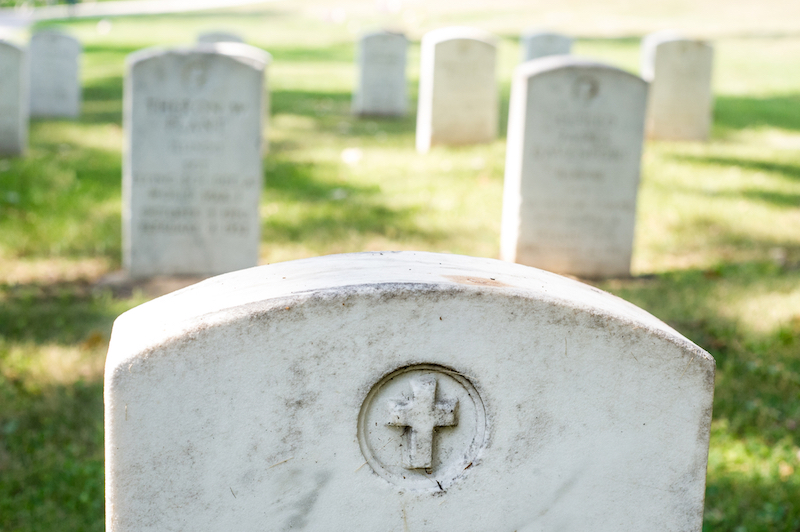The Pastor’s Toolkit is an ongoing series of practical resources for pastors, particularly focused on preaching and leadership. Find even more resources for pastors at our TGC Pastors page.
My introduction to conducting funeral services came at the ripe age of 17. I had been preaching for about a year—poorly, I might add. My dad, a funeral director in the small community where I grew up, called to see if I wanted to conduct a funeral. A man had died but had no pastor to conduct the service. Dad figured I needed to be tossed into the deep end of the pool if I were heading into ministry.
Many emotions ran through my mind: You’re kidding me! What would I say? I don’t know that person. After hearing my reaction, he kindly said, “I’ll help you.” So my first lesson on conducting a funeral for someone I didn’t know came from a graduate of a mortuary school, not a seminary.
Over the years I’ve been asked to conduct numerous services for people I didn’t know. That someone would make such a request tends to generate assumptions. The deceased must have been unconverted, or unchurched, or estranged from a church, or under church discipline. But are these assumptions correct?
There might be valid explanations as to why someone has no pastor. Maybe the deceased was in a nursing facility for a decade and lost contact with his former church. Perhaps they recently moved into the community and died before finding a church home. Maybe they were a faithful member but their church folded while they were incapacitated, leaving them without a viable church home.
We could add more assumptions, of course, but none of them may fit the person for whom you’re asked to conduct a funeral service. So how do you approach it? Here are five things I’ve learned from conducting such funerals:
1. Don’t jump to conclusions.
Initial assumptions about the deceased as a godless, anti-church, crusty old codger who had nothing for the gospel may be wrong. We need not cast judgment.
2. Be willing to conduct the service.
The last thing a grieving family needs is to do a Google search for “pastor willing to conduct funeral service for someone he doesn’t know.” See it as an opportunity for ministering gospel grace and gospel hope.
3. Take time to find out whatever you can about the deceased.

Unless there’s something amiss, most family members will talk about their loved one. Having an anecdote or two from their life adds a pastoral touch to your comments. A church member told me about a funeral for an older friend who had long been homebound. He had served in ministry, but for some reason a pastor who didn’t know him conducted the service. “It sure was obvious the preacher did not know my friend,” the member said. He took no time to discover anything about the deceased. Chalk that up to disinterest.
Perhaps a couple of personal illustrations will help.
A man in our congregation asked me to conduct the funeral for his brother whom I’d never met. This man wrote a number of interesting pieces for a British magazine while residing in the U.K. Listening to their reflections and reading the pulse of his life in those articles added a few anecdotes to the sermon. As it turned out, in the final conversations with his sister-in-law who regularly shared Christ with him, he professed faith in Christ. My initial assumptions proved wrong, so I was glad to have those conversations. It changed my entire approach to the sermon.
On another occasion, I was asked to conduct a funeral service for a young man who died of a drug overdose. He never attended church and had never known Christ. So I probed. What did he enjoy? Whom did he like to be with? Did he have any interests? The one thing that came through was his love for his friends. Despite the darkness of his life, he cared about others. In the chapel, I saw the motliest crew of attenders I’d ever witnessed at a funeral. I realized he had friends—grieving friends who had no clue how to cope with hopelessness at sudden death. So I offered reflection on the young man’s appreciation for his friends as I weaved the hope of the gospel throughout my talk.
4. Put yourself in the place of the family and friends attending the memorial service.
Would you want a John Knox thundering at Mary Queen of Scots? Or would you be more inclined to listen to the gentle, stirring prose of Samuel Rutherford? While you may want to hammer home a biblical truth—and you should—I suggest you do it with gentle boldness.
I remember assisting my dad with a funeral service for a known alcoholic who’d been murdered. The preacher didn’t know him but knew his family. Rather than tenderness toward them, he thundered away about that man’s debauched life. I cringed. They already knew about his debauchery. What they needed in that moment was the hope they had in the gospel.
5. Leave attendees with a sense of hope through the gospel.
Multitudes live without hope in Christ. But at a funeral you have a unique opportunity to set forth the one hope that lifts despairing people—Jesus Christ as revealed in the gospel. While recognizing the brevity of a funeral sermon (15 to 20 minutes), give them Jesus. Let them leave with a sense of Christ as the hope of sinners.
As you conduct the funeral of someone you don’t know, realize that our Lord wastes no relationship and squanders no opportunity—and neither should we.
Is there enough evidence for us to believe the Gospels?
 In an age of faith deconstruction and skepticism about the Bible’s authority, it’s common to hear claims that the Gospels are unreliable propaganda. And if the Gospels are shown to be historically unreliable, the whole foundation of Christianity begins to crumble.
In an age of faith deconstruction and skepticism about the Bible’s authority, it’s common to hear claims that the Gospels are unreliable propaganda. And if the Gospels are shown to be historically unreliable, the whole foundation of Christianity begins to crumble.



































